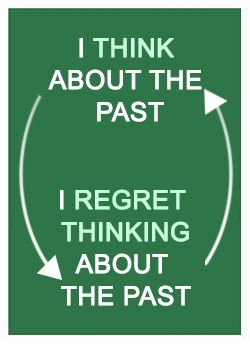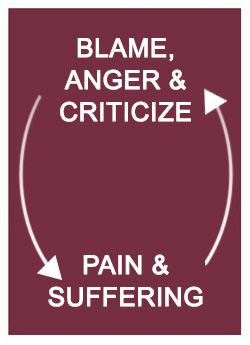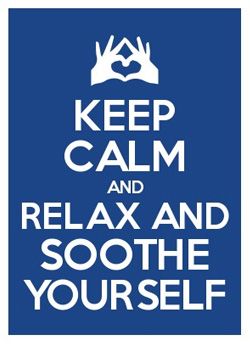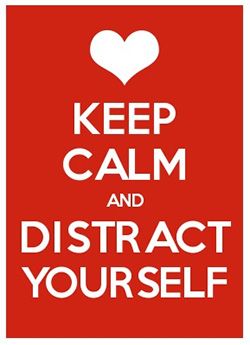Rewire your brain (Part 3) - Distress tolerance

Software Engineering Team Lead and Director of Cloudsure
Oliver Goldsmith says that the mind is ever ingenious in making its own distress.
In Part 2 we looked at how we can activate five neuro pathways in order to create new neural networks in the brain. This technique helps us rewire the brain to change our behavior.
In Part 3 we will focus on Distress Tolerance. This skill also helps to improve our behavior by introducing skills that help us cope under distress.
It is useful in a crisis or bad situation where emotions are overwhelming. The skills help us cope and survive the situation so that we can tolerate both the physical and emotional pain that we experience.
Distress Tolerance is a module in Dialectical Behavior Therapy (DBT).
According to behavioraltech.org, DBT is a cognitive behavioral treatment that was originally developed to treat chronically suicidal individuals diagnosed with borderline personality disorder (BPD) and it is now recognized as the gold standard psychological treatment for this population.
They go on to say that research says it is effective in treating other disorders such as substance dependence, depression, post-traumatic stress disorder (PTSD), and eating disorders.
I believe that Distress Tolerance offers essential life skills. It empowers you to cope with simple or complex day-to-day challenges. It is a great tool to use on your self improvement journey.
These skills don't teach us to change the situation. We just accept that it is the way it is because of a lot of shit that happened leading to that moment. We learn to tolerate the overwhelming emotions and minimize the suffering.
Through deliberate practice, I believe that the more this skill is exercised, the more automatic it becomes, thus our brains are rewired to minimize suffering.
We don't know when we are going to hurt and sometimes it's outside our control. Let's see how we can cope with the bullshit that comes our way.
Firstly, from my perspective, if you ever played Diablo 3, you will be familiar with the Inferno level— the hardest difficulty level in the game. Well, I experience my pain on Inferno level.
My physical and emotional pain is so overwhelmingly painful that I obviously can't think straight in that mindset. This leads to the inability to create solutions to the challenges I am facing. It also leads to awkward reactions and regrettable behavior.
Self-destructive coping mechanisms
Self-destructive coping mechanisms is not how we should deal with the bullshit that comes our way, but in many times it's the only way we know how to cope.
Let's make up a scenario. Alex gets into a fight at work about something miniscule. This fight leaves him drained and desperately wanting to binge on some crisp beers in his fridge at home.
He drives home thinking about how he could have changed Ryan's perspective or how he could have handled the situation better. Alex is still angry and traffic is a bitch. He curses, swears and flips off other drivers while he critically dwells on the situation.
He starts to fear that it may impact his position at work and gets anxious for the next day. Finally he gets home and hits the wall as hard as he can with his fist. The wall doesn't crack under his force and he starts drinking beer after beer alone at home not wanting to see other people.
Now he has a semi-broken fist and a monstrous hangover to start a new day.
Strategies such as dwelling on the past, being anxious about the future, isolation from others, taking frustrations out on others, substance abuse, self-harm, and so on, are all self-destructive coping mechanisms.
These mechanisms only deepens the pain both physically and emotionally and come at a negative cost.

Negative reinforcing loop
Think about it. If you are obsessively dwelling on the past, you are missing out on what is happening right now. You miss out on all the good things happening at this moment. You stay stuck and depressed on past things that you cannot change and later regret that you got stuck and depressed and missed out on now.
It's a negative reinforcing loop.
What are your self-destructive coping mechanisms? Think about the cost it has on your relationships, career, health, wealth and your mindset. Become aware of the dangers that unfold when leveraging these self-destructive coping mechanisms.
We need to replace these bad coping mechanisms with something more healthy.
Radical acceptance
We can cope with the bullshit that comes our way by changing our attitude. Instead of reacting by getting angry, upset, blaming someone or something, or criticizing yourself for causing pain; you can radically accept the situation.
That means that:
- You should acknowledge the situation you currently find yourself in.
- Don't judge the event or criticize yourself.
- Recognize that the situation exists because of a lot of shit that happened in the past leading up to this moment.
You cannot change what is outside of your control. You can control your actions, behavior and attitude.

Negative reinforcing loop
Blaming others or the situation and getting angry doesn't alleviate your pain and suffering. It just makes it worse because you can't change it. Another negative reinforcing loop exists here. Poor solutions come from being blinded by rage.
It doesn't mean that you agree with or condone the bad behavior of others or the circumstances, it just stops you from trying to change what you cannot. You minimize the suffering by refocusing your attention on what you can do now.
This can help you think more clearly and figure out a better way to cope.
Tell yourself phrases like:
- This is the way it has to be
- It's no use fighting the past
- The present is the only moment I have control over
- This moment is exactly as it should be, given what’s happened before
Distraction plan

Keep calm
You can temporarily distract yourself from the overwhelming pain. Focus on something that can help you calm down. It's like those silly calm down posters, like the one on the left.
Distraction skills can help you formulate a plan to deflect the pain and discomfort you feel at that time. Choose activities that work for you so that you can use them when you find yourself in dire straits.
The idea is not to avoid the challenges you are facing, rather to get your mind to a place of clarity and focus. This will help you find better solutions to the challenges and behave or react in a healthier way.
-
Distract yourself from self-destructive behaviors
Instead of hurting yourself try techniques like squeezing an ice-cube, screaming into a pillow or while you're alone in your car, snap a rubber band on your wrist, write hate letters to people and throw them away, throw socks or paper balls as hard as you can on a wall or cry.
Try any technique that you can think of, or Google, that will alleviate the pain without you physically harming yourself.
-
Distract yourself with pleasurable activities
Do something that makes you feel good such as exercise, a walk in the park, stretch your muscles, play video games, go to the movies, make your favorite food, watch something silly on YouTube, get a massage, sit in the garden, read a good book, do something nice that you have been putting off, take a bubble bath.
Whatever your flavor of pleasurable things to do, try doing one to take your mind off things allowing yourself time to cool down.
-
Distract yourself by paying attention to someone else
Do something for someone else like seeing if a friend or family member needs help with something or volunteer somewhere.
Take the attention off yourself. You can be creepy and go to a public place like a mall and watch what other people are doing, what they're wearing, how they are walking and what they are saying.
Think about someone you care about. If you had to talk to them now, what would they say to you?
-
Distract your thoughts
We can't control what thoughts our brains conjure up for us. The more attention we give it, the more it stays. The harder we try to forget about it, the same applies.
When we get stuck in a negative thought pattern it keeps us stuck. We want to get out of the unhealthy beliefs of ourselves, others and the world.
To distract our thoughts we can try think of other memories or creative images. Try picture pleasant events from the past or imagine a calming fantasy place.
Do this in detail. What detailed imagery do you see? What does it look like? What colors do you see? Who is with you? What do they look like? What smells are there? What sensations are you experiencing?
-
Distract yourself by leaving
Sometimes we forget that we can exit a situation.
If it is a heated conversation with a colleague or loved one and you aren't coping, tell the person that you need to step out. Give them an idea when you will be back so that you manage their expectations.
If you are in a meeting and your emotions are flaring up, your contribution won't be healthy. Politely excuse yourself from the meeting and return when you have calmed down.
If you are working on code that isn't compiling or working the way you intended and find yourself getting frustrated, get up and clear your mind. It's also wise to get two or more developers to work with you so that you can conquer the problem as a collective.
If you are in a place waiting for service which is taking too long, instead of getting angry, simply leave. You can always come back later if you so choose.
-
Distract yourself with tasks and chores
Take the time to complete chores or things on your TODO list like doing the dishes, cleaning your room, redecorating, cleaning out your closet, organizing or calling someone you haven't called in a while.
-
Distract yourself by counting
This is a simple skill that can keep your mind busy. You can count your breaths by breathing deeply; count cars, people, sounds, sensations, clouds; or count or subtract in increments of a number greater than 1.
Relaxation plan

Keep calm
When you are relaxed, your body feels good. Your heart beats slowly and your blood pressure is reduced.
You are no longer in survival mode or in a state of emergency panicking about facing or fleeing the situation.
When you are relaxed, your brain is in a healthier state to cope with the challenges that you face.
The activities below are indented to relax and soothe you. Find what works for you with your senses: smell, sight, hearing, taste and touch; it needs to introduce peace and serenity in that moment.
The activities you choose will formulate your relaxation plan that you can refer to when you find yourself in a pickle. It's wise to formulate two: one for at home and one outside of home.
-
Smell
Find smells that trigger good memories or make you feel good.
You can burn scented candles or incense; use scented oils; perfumes/colognes; go somewhere with pleasing scents; bake; lie down in the park; buy flowers; or hug someone who smells good.
-
Sight
Apparently a large portion of our brain is devoted solely to our sense of sight so what you look at can have powerful effects on you.
That means that you can soothe yourself by finding images that have that effect on you. You can find them in magazines, go to places, draw or paint your own or use a photograph.
You can also use cards with meaningful quotes or text on them. Some key rings come in the form of small booklets with inspirational messages in them.
-
Hearing
Listen to music that soothes you, not music that reinforces how you are currently feeling. It creates a negative reinforcing loop which sucks you in deeper.
You can listen to white noise; classical, relaxation or meditative music; music for developers; coffee shop noises; go to a place with peaceful sounds like the Botanical Gardens or a day spa; nature sounds or ambiance.
-
Taste
Get in touch with tastes that ignite pleasant memories or make you feel good. Try not to over-indulge as it may result in regret, guilt and shame.
Eat your favorite meal or snack; carry your favorite sweets with you; eat ice cream, chocolate, pudding, fruit; or have a soothing hot beverage.
Taste each bite (or sip) as you chew (or sip) slowly to enjoy it to its fullest.
-
Touch
We touch a lot of things each day. As our largest organ is our skin we can use this to our advantage when we need to soothe ourselves.
Carry something you enjoy the touch of like something soft, fluffy or velvety; enjoy a hot or cold shower where the water trickles on your skin; have a warm bubble bath with scented oils, candles and dimmed lights where you enjoy the bubbles popping gently on your skin; get a massage and enjoy the sensation that activate and relax your muscles; or simply wear clothes that you feel comfortable in.
My final thoughts
Through Radical Acceptance, Distraction Plans and Relaxation Plans we are one step closer to properly coping. DBT offers other modules that cover coping mechanisms such as emotion regulation skills, mindfulness skills, and interpersonal effectiveness skills.
Identify negative coping mechanisms and avoid self-destructive behaviors so that you break the negative reinforcing loop.
Accept that you can't change the past - radically accept the situation for what it is and come to terms with the fact that you can't change what has happened leading up to the situation. You can only control how you react in the circumstances.
Distract. Relax. Cope.
- Distract yourself temporarily from the overwhelming emotional pain.
- Relax and soothe yourself so that you are in a better frame of mind.
- Cope with the emotion to influence healthy behavior or reaction.
The more these steps are followed the more I believe our brains will be rewired to better deal with painful situations thus lowering the amount of suffering that we typically endure.
Credit: This post is a summary of the Distress Tolerance chapter in The Dialectical Behavior Skills Workbook listed in the references below.
You can buy it on Amazon and Google Books.
References
-
DBT, What is DBT?, The Linehan Institute, Behavioral Tech Research
-
Behavioral Tech, The Linehan Institute, Behavioral Tech Research
-
The Dialectical Behavior Therapy Skills Workbook, Practical DBT exercises for learning Mindfulness, Interpersonal Effectiveness, Emotion Regulation and Distress Tolerance by Matthew McKay, PH.D, Jeffrey C. Wood, Psy.D, Jeffrey Brantley, MD
-
The Secret of Becoming Mentally Strong, Amy Morin, TEDxOcala
-
Music for developers, musicForProgramming.net - A series of mixes intended for listening while '+task+' to aid concentration and increase productivity (also compatible with other activities).
-
Coffee shop noises, Coffitivity recreates the ambient sounds of a cafe to boost your creativity and help you work better.
-
Nature sounds or ambiance, Calmsound - Free nature sounds, the oasis of relaxation.


